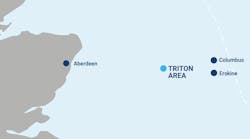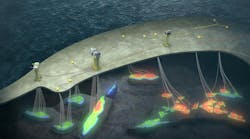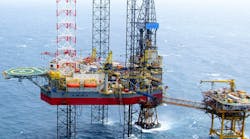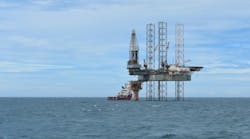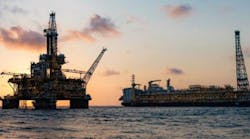Offshore staff
LONDON – Wood Mackenzie sees little change of direction for Nigeria’s oil and gas industry in the immediate future following the re-election of Muhammadu Buhari as president.
Gail Anderson, director, Sub Saharan Africa research, said: “A second term means stability within key state bodies, such as the Nigerian National Petroleum Corp. (NNPC) and the Ministry of Petroleum Resources…
“In his first term, Buhari presided over collapsing oil prices, production outages and a depreciating currency. The economic climate now is better than it was in 2015, but we expect no change in his economic approach, which is about tight control over Nigeria’s monetary policy and its main revenue earner, oil and gas.”
In the build-up to the election, Buhari indicated he could sign the Petroleum Industry Governance Bill, subject to amendments. But Buhari remains Minister of Petroleum Resources, and it is doubtful whether he would want to allow the NNPC to become an independent commercial entity.
“Fiscal reforms are still at senate committee reporting stage in the current National Assembly, which runs until June,” Anderson said. “This makes for a long transition period - court action notwithstanding - when little progress is likely.
“When the ninth assembly opens later in June, the clock will be re-set and all bills will have to be re-tabled, from first reading onwards. Although it looks like the APC will again control of both upper and lower chambers, history tells us that is no guarantee of success. Hence, the legislative route to reform will likely hit a roadblock.”
Discussions have started with international oil companies on fiscal terms, with various 20-year deepwater contracts due to expire from 2023 onwards.
“The administration and, indeed, politicians from all sides are eager to increase the government’s share from these contracts,” Anderson pointed out. “Although the IOCs would reluctantly accept tougher deepwater terms in return for another 20 years, getting a fair balance between investors and the state is vital.
“With major FIDs [field investment decisions] highly unlikely until the issue is resolved, these negotiations will go a long way to determining whether Nigeria’s world-class deepwater has an attractive long-term future. There is a lot at stake in the next four years.”
03/01/2019
